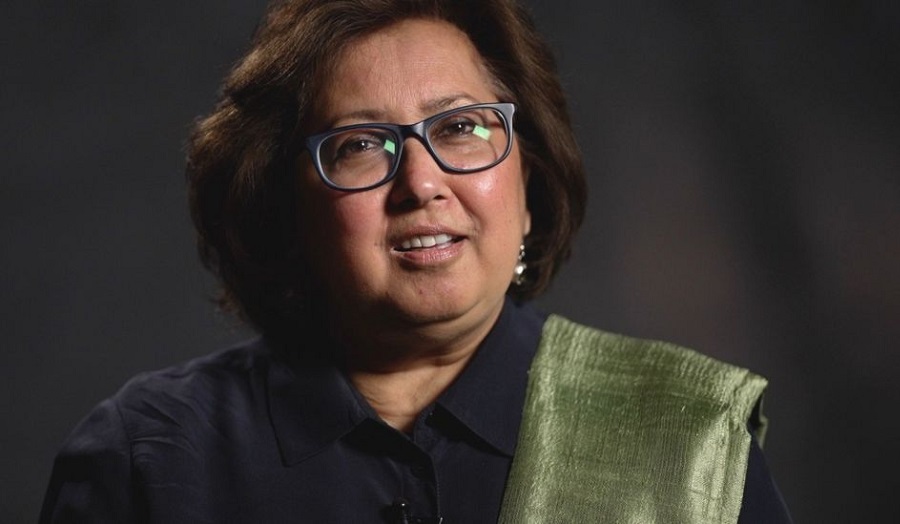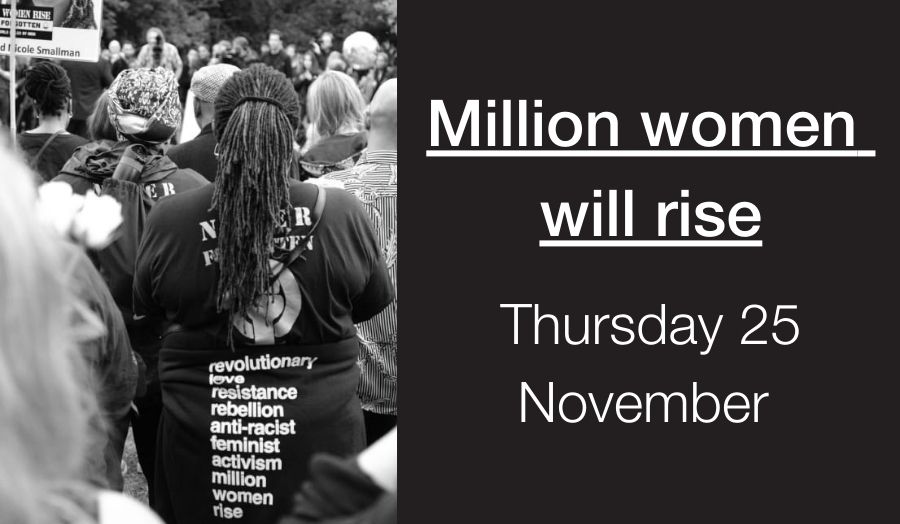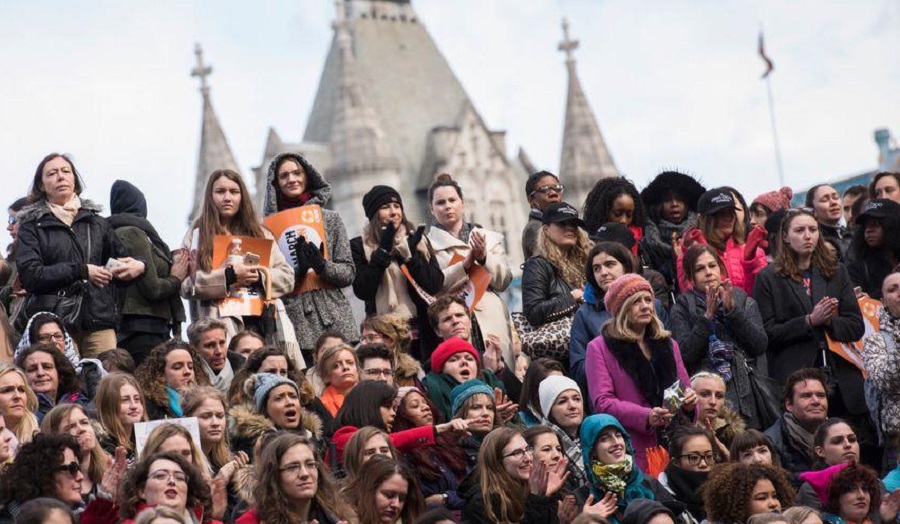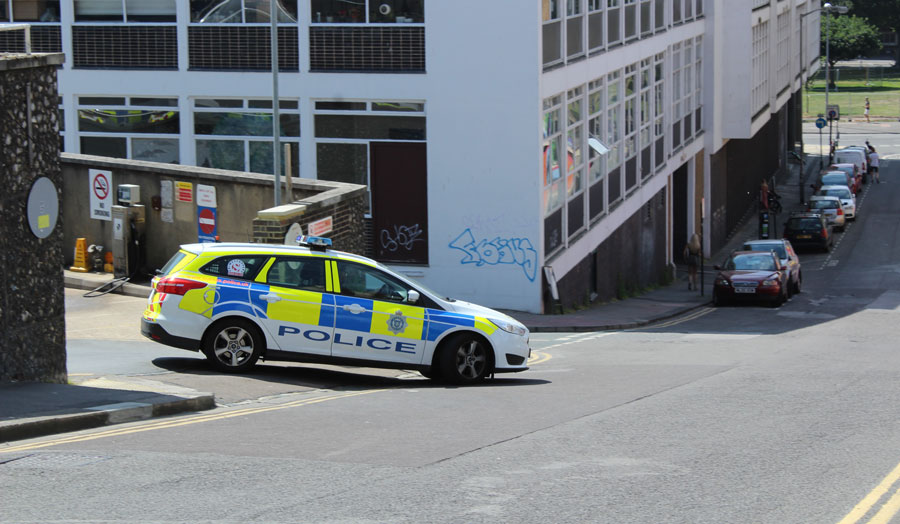Apply for this course
Please select when you would like to start:
Use the apply button to begin your application.
If you require a Student visa and wish to study a postgraduate course on a part-time basis, please read our how to apply information for international students to ensure you have all the details you need about the application process.
Why study this course?
Supported by the internationally renowned Child and Woman Abuse Studies Unit, the master's in Woman and Child Abuse provides a solid grounding in theoretical frameworks, policy and practice approaches.
This course is ideal for those who are working in specialised services for women and children who have experienced violence, in policymaking or delivery at local, regional or national levels, or anyone wanting to establish careers in these sectors.
Benefit from our external links
This course is supported by the internationally renowned Child and Woman Abuse Studies Unit
Take your career prospects to the next level
This course is ideal for those who are working or wish to work in specialised services for women and children who have experienced violence, in policymaking or delivery at local, regional or national levels
Study on a cross-disciplinary course
The course content draws on sociology and including social policy, criminology and psychology
Course modules
The modules listed below are for the academic year 2024/25 and represent the course modules at this time. Modules and module details (including, but not limited to, location and time) are subject to change over time.
Year modules
Researching Violence and Evaluating Interventions
This module currently runs:autumn semester
(core, 20 credits)
On this module you will gain a solid grounding in methodological approaches to researching forms of violence against women and children and evaluating support and prevention initiatives/interventions. You will be taught about: feminist epistemologies and power in the research process (including standpoint theory and the need to take account of intersecting relations of power throughout the research process); how to conduct literature searches; the importance of a literature review for research projects; formulating research questions; ethical dilemmas and practices; how to make sense of quantitative data, including prevalence data; a range of qualitative research methods – interviewing, focus groups, ethnography and qualitative data analysis techniques (thematic, discourse, narrative, content, semiotic); undertaking research with children and young people, including through the use of creative and arts-based methods; producing impactful, policy-oriented research; and approaches to evaluation and the specific issues, challenges and opportunities of creating knowledge through evaluating interventions with victim-survivors and perpetrators of violence. You will also benefit from expert guest lectures on completed research projects, detailing the researcher’s approach to the production of knowledge, consideration of multiple power relations, reflections on ethics and key findings, and the impact of their research / evaluation.
The aims of the module are:
• To develop students’ understanding of research projects and the research process.
• To introduce feminist epistemological and methodological approaches to research.
• To explore the range of methods used to build the evidence base on violence against women and children, and the connections to policy contexts.
• To assess the strengths and limitations of qualitative, quantitative and mixed methods for answering research questions on violence against women and children.
• To address ways to collect, organise, store and analyse data.
• To critically examine approaches to evaluating interventions with victim-survivors and perpetrators of violence.
• To explore the creation and critique of knowledge claims about violence and interventions.
Sexual Exploitation of Children and Young People
This module currently runs:summer studies
(core, 20 credits)
This module focuses on the sexual exploitation of children and young people in the UK and also looks at forms of sexual exploitation in the Global South. On this module, you will be introduced to debates about definitions, policies and legal frameworks as well as key feminist debates on the ethics and practice of researching sexual exploitation. You will learn about specific forms of sexual exploitation around the world including online harms, image based sexual abuse, early/forced marriage, transactional sex, peer on peer abuse and sex trafficking.
You will also learn about varied contexts for sexual exploitation such as the sexualisation of popular culture, religious values and institutions, local authority care, gang-association, and sex tourism. You will be offered an introductory session on what the research evidence tells us about abusers and coercers. You will be encouraged to think critically about effective disruption, protection and prevention especially in relation to the criminal justice system, child protection systems and new practice developments. Throughout the module you will be asked to attend to intersecting axes of power and how these might impact or shape the experiences and barriers for minoritised children, boys/young men, neuro-divergent children and children with a range of disabilities and working-class girls. Where the conversation is about the Global South, you will be asked to consider the specific impacts for minorities within those countries.
Read full detailsSexual Violence: Causes, Consequences and Interventions
This module currently runs:spring semester
(core, 20 credits)
Through this module, you will be introduced to feminist approaches to gender, sexuality and crime, and you will learn to critically examine theoretical, conceptual and explanatory frameworks. From an intersectional framework, you will learn about forms of sexual violence in childhood and adulthood; incidence, prevalence and reporting; impacts and meaning for victims/survivors; and sexual violence within different contexts such as the workplace, universities and conflict zones. You will learn about research on perpetrators and approaches to prevention. You will be taught about the criminal justice system, legal reform and the development of policies and support services. Specific lectures will reflect on the cultures and norms or conducive contexts – such as media representation and the sexualisation of popular culture - that support and legitimise sexual violence within the contemporary globalised world. Throughout the module you will also learn about the specific dimensions for minoritised women in the UK – in terms of their intersecting experiences of racism and sexism in the criminal justice system or cultural norms and barriers that suppress or penalise disclosure – as well as the way that sexual violence is implicated in histories of colonisation and slavery.
Read full detailsViolence Against Women: Issues, Research and Policy
This module currently runs:autumn semester
(core, 20 credits)
Within an intersectional framework, you will be introduced to the range of forms of violence against women, their prevalence and consequences, as well as the structures, contexts and cultural norms that enable and reproduce violence, and the impacts / consequences of violence/abuse. You will learn about key concepts and frameworks for understanding violence against women and children. You will be taught specific sessions on intimate partner violence including coercive control, its impact on children, street harassment, trafficking for sexual exploitation, female genital mutilation, honour-based violence, and various barriers to support including immigration controls. The classes will draw your attention to the current evidence base and the conceptual frameworks used in addressing and responding to violence and abuse. We will critically assess explanatory frameworks and current policy approaches.
Read full detailsWoman and Child Abuse Dissertation
This module currently runs:autumn semester
spring semester
summer studies
(core, 60 credits)
The dissertation is a major part of the MA Woman and Child Abuse programme and for this reason it carries triple the weight of a normal module [i.e. 60 credits]. It allows you to conduct an extended investigation into a topic of your choice within the area of violence against women and children. It may be the biggest test of the academic skills that you have developed during the MA.
This module aims to enable you:
-To integrate the skills and knowledge-base that you have acquired through the other four core modules on the Woman and Child Abuse programme and to focus these on a specific topic.
- To learn how to identify a specific research question and develop a project around this.
- To apply appropriate skills of analysis and knowledge of methodologies.
- To manage your own research project.
- To demonstrate your ability to plan, organise and write a lengthy prose work.
- To engage in critical reflection on the process of producing a sustained piece of work.
Creative Nonfiction
This module currently runs:autumn semester - Thursday morning
(option, 20 credits)
This module explores creative nonfiction, focusing on researching and writing different kinds of narrative such as history, life writing (biography and memoir), travel writing, science writing, sports writing, nature writing, reportage and literary journalism. You will study some leading examples of the genre. You will learn to identify suitable stories and apply techniques from both creative writing and long-form journalism to bring them to life in your own original portfolio of creative nonfiction. You will develop an understanding of the market for creative nonfiction and the ethical issues that can arise, along with an awareness of the history and cultural context of the form, and emerging, innovative new trends.
Creative nonfiction is a flourishing genre, opening up for novice writers a variety of pathways into publication. It bridges the Creative Writing and Feature and Arts Journalism core modules, so that together they provide you with a suite of advanced writing skills. It is a particularly valuable component of an inclusive curriculum since it encourages you to draw on your personal experience, to explore different ways of communicating this and to address the challenges of turning it into publishable writing.
The module will enable you to transform research and personal experience into creative nonfiction, to enhance your writing and editing skills through advanced writing workshop activities and to develop your understanding of the different markets and outlets for creative nonfiction and therefore the publishability of your writing.
Aims
• You will learn how to plan, write and edit attractive pieces of creative nonfiction, with an understanding of how to structure them for different markets
• You will develop a critical awareness of the creative processes and research techniques involved in producing your own and others creative nonfiction
• You will learn how to identify the main characteristics of narrative nonfiction and be able to analyse creative nonfiction as a genre
• You will be able to learn independently as part of your continuing professional development
Gender, Victimisation and Crime
This module currently runs:autumn semester - Tuesday afternoon
(option, 20 credits)
This module examines the gendered nature of crime and victimisation. You will be introduced to key theories of the relationship between gender, crime and victimisation. You will gain an understanding of contemporary issues in the field of intersectional and post-colonial feminist theories. The module examines global crime issues including sex trafficking and illegal migration, drug trafficking, sexual violence in war, forced marriage and cybercrime and gender violence. In doing so, key definitional debates relating to social, political, media, cultural and ideological understandings of the phenomena are examined. Questions about the victim-offender overlap and the problematic responses will be tackled throughout the module.
The module aims to:
● Understand theories of gender, crime and victimisation.
● Develop a critical awareness of the broad social, cultural, economic and political aspects of gendered crime.
● Engage critically with the laws and policies.
● Assess the impacts and consequences of gendered crime.
Healthcare Public Health
This module currently runs:spring semester - Thursday afternoon
autumn semester - Thursday afternoon
(option, 20 credits)
This Module will discuss the application of public health sciences to healthcare services, planning, commissioning, and provision. Hence, you will learn some of the core skills and tasks required to produce evidence upon which to make evidence-based decisions in regards to these aforementioned areas. The approaches covered in this module, are also applicable to Health Improvement, and Health Protection, but in this module, they are covered in regards to Healthcare Public Health, grounding you in this discipline, while providing transferable skills to the other domains of Public Health. It will enable you to examine and reflect on the application of public health approach to healthcare at population level. Therefore, you will also have an opportunity to learn the skills required in local authorities to produce joint strategic needs assessments and local health needs assessments that inform decision making in healthcare service planning, design, development and delivery.
The module aims to: -
Develop knowledge and application of a Health Needs Assessment
Enhance evidence-base practice skills, in the area of evidence-based healthcare
Provide a grounding in planning, development, and design of services based on health needs, prevention, early diagnosis, and treatment of illness, quality, efficiency, value, variation, and equality, on a population scale
Develop knowledge and application of service evaluation and commissioning
Provide learning opportunities in literature searching including review and critical analysis
Human Rights and the International Order
This module currently runs:spring semester - Monday evening
(option, 20 credits)
Human Rights and the International Order analyses the institutionalized practice of human rights, their emancipatory achievements and legitimatory function, their internationalization in the 1940s and 2001’s thwarting of the ambition of a “responsibility to protect”, the present plight of both them and the order along with which they were internationalized, and their prospects.
The module aims to enable its participants to critically analyze:
1. the causes of, and reasons for, the Universal Declaration of Human Rights, and the broader development of human rights as a globalizing and institutionalizing force in relations between states;
2. the variety of particular states, domestic and foreign policies, non-state actors, cultures, and motivating ideologies with which human rights has come into conflict, and to explain such conflict;
3. the role of human rights in justifying wars, in legitimating international organizations, and in maintaining international order.
Read full detailsHuman Security
(option, 20 credits)Human Security is an approach to politics that focuses on the well-being of individuals and communities. Its particular focus is to identify and understand threats to peoples’ security that are not confined to armed conflict, not understood at the level of the state, and not encompassed by the general understanding of national security.
The goal of this module is to introduce a range of issues that have been construed as relevant to security in recent years, and which have changed and expanded the notion of security within the study of international relations. In the post-war period, and particularly since the end of the Cold War, it has become apparent that safety, peace and the pursuit of prosperity can be threatened in many ways other than by armed conflict.
This module will explore the concept of security as it is understood within the International Relations discipline. What has been the rationale for the development of a distinct concept of ‘human security’? What are the implications of the concept of human security for our understanding of security in the international system? It will then examine the application of the concept to substantive problems and policy areas. These include the impact of poverty and inequality, gendered violence, the impact of environmental degradation, food insecurity, mass population movement, human trafficking and international crime. Finally, it will assess the impact of the concept on the strategies and policies of international organisations and states.
Modern Slavery, Human Trafficking & Organised Crime
This module currently runs:autumn semester - Tuesday morning
(option, 20 credits)
This module examines the phenomena of modern slavery, human trafficking and organised crime from critical and theoretical perspectives. It explores an understanding of the forms, patterns and trends of modern slavery, human trafficking and organised crime. It will also include consideration of some relevant policy and legislation needed to address modern slavery, human trafficking and organised crime.
The module aims to:
1. Consider a variety of terms associated with human trafficking; its relationship with modern slavery, the sex industry and forced labour.
2. Examine the broad social, cultural, economic and political aspects of modern slavery, human trafficking and organised crime.
3. Evaluate the geographical and global influences on trafficking; such as migration flows, globalisation and conflict zones.
4. Understand the impacts and consequences of modern slavery, human trafficking and organised crime activities.
5. Discuss the relationship between the various forms of trafficking and organised crime, and both national and international legislation that has been established to address this growing criminal enterprise.
Policies, Regulatory framework for Safeguarding
This module currently runs:spring semester
(option, 20 credits)
This module cultivates students’ familiarity with a range of policies and regulatory frameworks that have emerged in the context of ensuring the identification of risks and the meeting of safeguarding needs. The module builds on the Safeguarding and Security MA’s ethos of developing critical awareness of contested notions of vulnerability and policy responses addressed across core modules. This module will enable students to theorise aspects of legal reform and be equipped with conceptual tools for the evaluation of legislative procedures and policy arrangements. The module assignments are designed to develop core course objectives relating to the development of individual judgement and reflexivity and to apply evaluative skills in practice through an evidence-based approach.
The module aims to:
• Build student’s awareness of the underpinning historical and social policy context of regulatory safeguarding frameworks.
• Critically engage students in themes within safeguarding and their relevance to existing and emerging policy and legislation develop student’s capacity to apply knowledge to the communication, interpretation and development of safeguarding policy and practice.
Read full detailsPsychology and Crime
This module currently runs:spring semester - Tuesday morning
(option, 20 credits)
The main aim of this module is to provide you with core knowledge and understanding of approaches to explaining criminal behaviour and its impact upon individuals and society.
During the course of studying this module you will cover some diverse topics including an overview of the major perspectives in criminology, a discussion on the measurement of crime and following from this workshops focusing on psychological elements to forms of crime and violence, such as sex offending, domestic violence, stalking and homicide.
When studying this module you will:
● Provide an overview of the measurement of crime and factors influencing the degree of error in this measurement.
● Provide an account of psychological factors that are related to or help to explain crime at both a general level and in terms of specific offences (e.g., arson) and specific offender groups (e.g., juveniles).
● Evaluate the contribution of psychology to the explanation of criminal behaviour relative to and in interaction with explanatory frameworks and factors from other disciplines.
Radicalisation and counter-radicalisation strategies
This module currently runs:spring semester
(option, 20 credits)
This module is an opportunity for students to engage with the growing literature in this field, to learn about statutory obligations like the Prevent Duty and to critically analyse socio-political movements and state responses to those movements from a human rights perspective. This module will challenge students to think about the usefulness and operationalisation of particular concepts (extremism, radicalisation, terrorism, racism, fascism, and fundamentalism), it will provide a detailed analysis of current modes of radicalisation (face to face, online, offline, through networks and through institutions like prisons) and specific right wing or extremist formations (white supremacist, Incels & the Manosphere, Christian Right, Muslim fundamentalism or Islamism, Zionism, Sikh and Hindu fundamentalism) and consider in detail the impact on specific groups of people (women/girls, children/young people, dissenters and minorities). The module will enable critical engagement with government responses and a comparative view of where the UK sits in relation to counter-radicalisation strategies in other countries.
The module aims are as follows:
• To consider and critically engage with key concepts;
• To provide an understanding of the ideological projects of the groups concerned and their mobilisation tactics;
• To nurture a human rights framework for responding to radicalisation;
• To encourage a comparative analysis of these formations;
• To encourage a comparative analysis of state and civil society responses.
This module is of relevance to a number of postgraduate programmes in CSPIR including the MA Woman and Child Abuse (because of the focus on gender relations and the targeting of women/girls) and Masters programmes being offered by the International Relations team. It provides an important foundation for anyone that wants to make a contribution to countering racial and religious supremacy and misogyny, the rise of racism, fascism, fundamentalism and terrorism.
Read full detailsVulnerabilities and Risks
This module currently runs:autumn semester
(option, 20 credits)
This module serves as a central component in realising the Safeguarding and Security MA’s objective of enabling students to develop a critical awareness and appreciation of contested views of vulnerability and responses. It therefore complements core modules addressing modes of intervention, responsibility and institutionalisation of policies. In addition, the module conceptually informs students’ perspectives on methodological approaches to researching vulnerability and violence. The module invites students to develop a critically informed approach to categories of vulnerability and risk as an introduction to safeguarding policy and practice. The module traces the emergence of vulnerability and risk in social, cultural and political contexts encouraging students to understand their social construction in relation to broader social issues. The module equips students with a range of theoretical positions and concepts allowing sociological insight into the inter-subjective dynamics of risk and vulnerability. These include attention to dominant moralising agendas, societal influences, cross-cultural comparisons, the normalisation of abuse, precarity, and/or exploitation, and the implications of media representations of the vulnerable.
The module aims to:
• Explain the historical development of safeguarding measures in terms of social attitudes and welfare policy mechanisms.
• Provide the theoretical and conceptual tools as a basis for defining and measuring vulnerability and risk.
• Explore a range of tensions between the conceptualisation of vulnerability and the effective implementation of prevention policies.
• Study the nature of abuse/exploitation in relation to age, gender, social class and ethnicity.
• Develop a systematic understanding of the complex relationship between society and vulnerable groups.




























